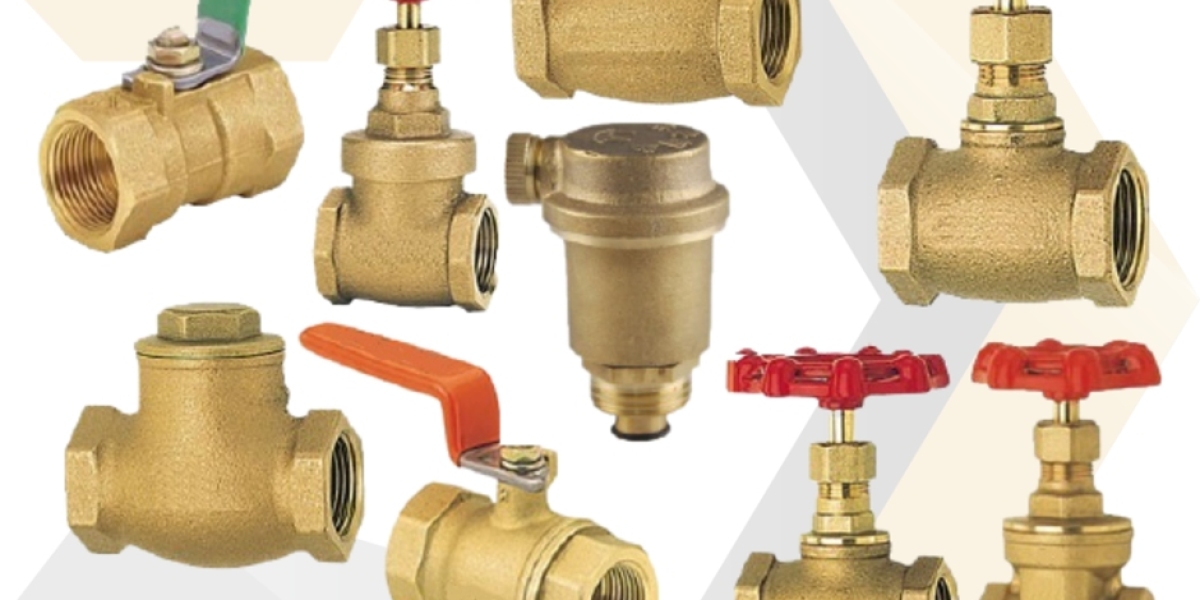Brass valves are crucial components in HVAC systems, known for their durability and reliability. These valves play a significant role in controlling the flow and pressure of fluids within heating, ventilation, and air conditioning systems. Understanding what brass valves are and why they are essential can help you appreciate their importance in maintaining efficient and safe HVAC operations.

![]()
What Are Brass Valves?
Brass valves are devices made from brass, an alloy of copper and zinc, designed to regulate the flow and pressure of fluids in various systems. They come in different types and configurations, including:
- Compression Valves: These valves use a compression mechanism to create a tight seal, controlling the flow of fluid through a pipe.
- Ball Valves: Featuring a spherical ball with a hole through the middle, ball valves provide on/off control and are known for their quick operation and reliability.
- Gate Valves: Gate valves use a sliding gate to regulate flow and are often used in applications where minimal pressure loss is desired.
- Check Valves: These valves allow fluid to flow in one direction only, preventing backflow and protecting the system from damage.
- Pressure Regulators: These valves control and maintain the pressure within the system, ensuring that it remains at optimal levels.
The choice of valve type depends on the specific requirements of the HVAC system, including the type of fluid, pressure, and flow rate.
Why Are Brass Valves Essential for HVAC Systems?
Brass valves offer several advantages that make them indispensable in HVAC systems:
Durability and Longevity
Why It Matters: HVAC systems are subject to constant stress from fluid flow and pressure variations. Valves made from brass are highly durable and resistant to corrosion, ensuring long-term performance even in demanding conditions.
Benefits: Brass’s resistance to rust and wear makes these valves ideal for use in HVAC systems, where they can withstand harsh environments and extended use without degrading. This durability translates to fewer replacements and lower maintenance costs.
Reliable Performance
Why It Matters: The effective operation of an HVAC system relies on precise control of fluid flow and pressure. Brass valves are known for their reliable and consistent performance, ensuring that HVAC systems operate smoothly and efficiently.
Benefits: The reliability of brass valve helps maintain optimal system performance, preventing issues such as leaks, pressure drops, and flow inconsistencies. This reliability contributes to the overall efficiency and safety of the HVAC system.
Leak Prevention
Why It Matters: Leaks can lead to significant problems in HVAC systems, including reduced efficiency, increased energy costs, and potential damage to other components.
Benefits: Brass valves, particularly compression and ball valves, are designed to create secure, leak-proof connections. Their robust construction and precise engineering ensure that fluids are contained effectively, minimizing the risk of leaks and associated issues.
Pressure Regulation
Why It Matters: Maintaining proper pressure levels is crucial for the efficient operation of HVAC systems. Pressure that is too high or too low can affect system performance and longevity.
Benefits: Brass pressure regulators help maintain optimal pressure within the system, ensuring that it operates within its designed parameters. This regulation prevents damage and inefficiencies caused by pressure fluctuations.
Versatility and Compatibility
Why It Matters: HVAC systems vary in design and application, requiring valves that can handle different types of fluids and pressures.
Benefits: Brass valves are versatile and compatible with a wide range of HVAC applications. Their ability to handle various fluids, including water and refrigerants, makes them suitable for diverse systems and setups.
Ease of Maintenance
Why It Matters: Regular maintenance is essential for the longevity and performance of HVAC systems. Valves that are easy to service contribute to more efficient maintenance practices.
Benefits: Brass valves are designed for ease of maintenance, with straightforward mechanisms that simplify inspection and repair. This ease of maintenance helps ensure that the HVAC system remains in good working order.
Conclusion
Brass valves are essential components in HVAC systems, offering durability, reliable performance, and effective control over fluid flow and pressure. Their ability to prevent leaks, regulate pressure, and provide versatility makes them indispensable for maintaining efficient and safe HVAC operations. By choosing high-quality brass valves, you can ensure that your HVAC system operates smoothly, efficiently, and reliably.









